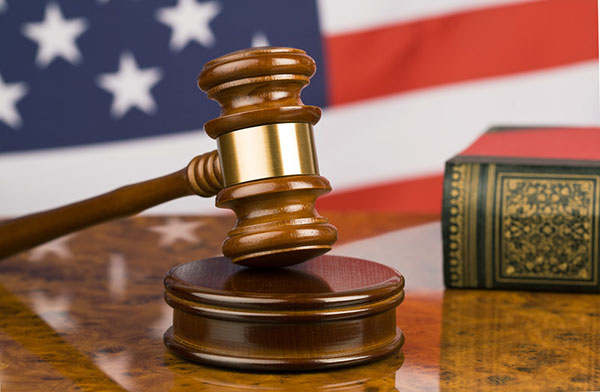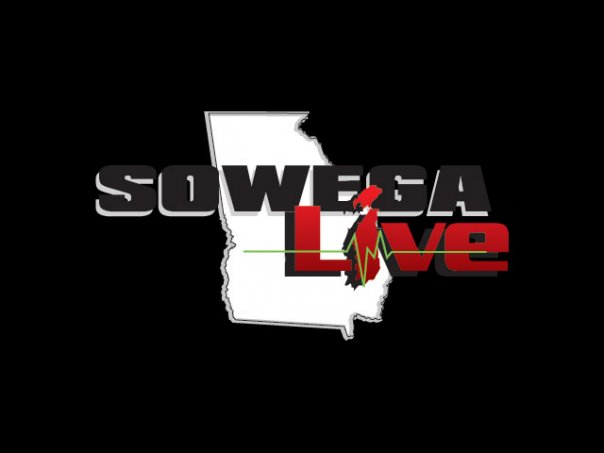
ALBANY, GA — Several former decision makers affiliated with the Money Tree, Inc are standing trial in federal court in Albany.
The trial is being held in the federal courthouse of the United States District Court for the Middle District of Georgia in Albany. Information for this article was obtained from the Court.
The defendants are:
Derek Martin Defendants
D1: W Derek Martin (as executor of Estate of Vance R Martin)
D2: W Derek Martin
D5: Shana Shockley Martin
D8: Martin Family Group LLP
D9: Martin Sublease, LLC
D10: Martin Investments Inc
D11: W Derek Martin (as trustee for the Vance R Martin GST Exempt Family Trust on Behalf of W Derek Martin)
Jeffery Martin Defendants
D3: Jeffery V Martin
D6: Kimala B Martin
D15: Jefferey V Martin (as trustee for the Vance R Martin GST Exempt Family Trust on Behalf of Jefferey V Martin)
Johnston Defendants
D4: Grace Elizabeth Martin Johnston
D13: James Patrick Johnston
D14: Grace Elizabeth Martin Johnston (as trustee for the Vance R Martin GST Exempt Family Trust on Behalf of Grace Elizabeth Martin Johnston)
Bellville Defendants
D7: Bradley D Bellville
D12: H&B Enterprises, Inc
Jury selection began on day one of the trial (October 3) and lasted until late in the afternoon of day two. After the jury was selected and given their instructions, Judge W. Louis Sands instructed the prosecution to begin their opening statement. The first half of the opening statement was approximately 50 minutes, with court adjourning for the day around 4:40 p.m.
On day three (October 4), the day began with the prosecution completing their opening statement after approximately an hour. The defendants’ attorneys began their opening statements which lasted for a little more than an hour and a half total. After opening statements were complete, the first witness was called to the stand. Mary Warren testified for approximately 30 minutes, followed by the second witness Gregory Hayes. Mr. Hayes testified from 11:21 until approximately 2:00 p.m. (excluding a 35 minute lunch break). At the conclusion of Day three, a discussion arose about the use of the term “Ponzi Scheme” (more on that later).
On day four (October 6), the third witness of the trial was called. Brad Bellville, also a defendant, was called to the stand at 8:04 a.m. and testified until court adjourned at 2:03 p.m. There were two breaks during the day totaling about 55 minutes.
Day five began with Brad Bellville still on the stand until 9:00 a.m. After Mr. Bellville was excused from the stand, the fourth witness, Deborah Inlow, was called and testified from approximately 9:00 a.m. until 11:11 a.m. After Mrs. Inlow was excused, the prosecution called Steven Morrison to the stand. Morrison testified until court adjourned at 2:00 p.m.
On day six (October 11), Steven Morrison continued his testimony until approximately 9:03 a.m. He was followed by Harold Blount and James Hart on the witness stand.
Day seven (October 12) began with James Hart on the witness stand until 8:26 a.m., followed by Jennifer Ard, who testified from 8:26 that morning until court adjourned for the day at 2:13 p.m. The day included two breaks that totaled approximately an hour and a half.
Day eight (October 13) saw Jennifer Ard on the stand until approximately 8:44 a.m., followed by the ninth witness, Jeffery Martin, who testified from 8:44 until approximately 12:51 p.m. (with a 50 minute lunch break). At 12:51 p.m., Derek Martin took the stand and stayed there until court adjourned at 2:13 p.m.
Day nine (October 14) saw Derek Martin on the stand until 10:49 a.m., followed by witness number 11, Michael Hunter. Hunter was submitted as an expert witness in his field, real estate appraisal. The jurors were excused at 12:51 p.m.
COURT ORDERS
So far, the court has heard and ruled on several motions in limine (A motion in limine is a motion filed by a party to a lawsuit which asks the court for an order or ruling limiting or preventing certain evidence from being presented by the other side at the trial of the case.)
- The Martin Defendants’ motion to exclude any reference to or mention of a Ponzi Scheme or a Ponzi Scheme presumption.
- The Court ruled “Under the present circumstances in this case, the Court will not now allow the jury to be qualified on Ponzi schemes or allow them to make a finding on the Ponzi scheme presumption when there has been no allegation of a Ponzi scheme. The committee must first present sufficient facts to support their actual fraudulent transfer claims through their alleged “badges of fraud”, and satisfy the Court that all prerequisites are met. In this case, there is no presumptive Ponzi scheme. Accordingly, the Martin Defendant’s Motion of Limine at this stage is GRANTED. Therefore, no reference may be made to “Ponzi schemes” by counsel, parties, or witnesses in the presence of the jury unless or until an evidentiary foundation has been laid and the Court is noticed of the Committee’s intent to assert the same”
- The Martin Defendants’ motion to prevent from introduction at trial specific information about investors, their reasons for investing in The Money Tree, Inc or its affiliates (“The Money Tree”), the aggregate amount of money invested into or owed by the Money Tree, The Money Tree’s use of the investment proceeds, and the value of the current assets of the Martin Defendants.
- The Court ruled, “Accordingly, the Martin Defendant’s Motion in Limine (Doc. 247) is GRANTED-IN-PART and DENIED-IN-PART. The investors’ socioeconomic profiles and their reasons for investing in The Money Tree may be admitted to support the Committee’s claims of reasonable discoverability, actual fraud, but not for breach of fiduciary duties. The Court will reserve judgment on the punitive damages claim with respect to the profiles of investors. The uses made by The Money Tree of the investment proceeds are permitted to support the Committee’s actual fraud and breach of fiduciary duties claims. The aggregate amount of the money invested by investors into the Money Tree is also permissible to support the Committee’s breach of fiduciary duties claim, but not its breach of trust claim. As noted above, the Martin Defendants abandoned their request to exclude the current value of Defendants’ assets. Therefore, that evidence will be permitted and the Court does not find it to be unduly prejudicial.”
- The Post-Confirmation Committee for Small Loans, Inc (“the committee”) motion to exclude any reference or mention of religious beliefs or lack thereof.
- The Court ruled, “Accordingly, the Committee’s Motion in Limine (Doc. 249) is GRANTED-IN-PART. In light of the prohibitions found in Rule 610, Elizabeth Johnston is not permitted to elaborate on her religious status, beliefs, or activities to support her credibility or reserved defenses not directly related to facts in issue. Such matters may not be referenced in the presence of the jury, unless and until the Court is noticed and an adequate foundation for admission is asserted and shown.”
- The Committee’s motion to preclude evidence of the size, status, and reputation of Greenberg Traurig, LLP, the out-of-state residency of Plaintiff’s counsel, and the in-state residency of defense counsel from the presence of the jury.
- The Court ruled, “Pursuant to Rules 401, 402, and 403, the Committee moves to preclude all Defendants from offering any evidence or argument concerning the size, status, and reputation of Greenberg Traurig, LLP, the out-of-state residency of Plaintiff’s counsel, and the in-state residency of defense counsel. The Martin Defendants concede that the prestige of Greenberg Traurig LLP is irrelevant, but contend that voir dire requires reference to the firm’s location in Atlanta, Georgia and Tallahassee, Florida. As discussed during the August Pretrial Conference, the jury will be specifically qualified as to their relationship with firms represented by the Parties, not just Plaintiff’s counsel, and with the particular lawyers trying this action. The location, in and of itself, of the firms represented by any of the Parties is irrelevant to proper jury qualification and this action. To this extent, the Committee’s Motion in Limine (Doc. 250) is GRANTED.
- The Committee’s motion to prevent offering evidence or argument with regard to the illness or death of Defendants W Derek Martin and Shana Shockley Martin’s son, Pearson Martin.
- The Court ruled, “Thus, the Committee’s Motion in Limine (Doc. 251) is GRANTED-IN-PART to the extent that Derek Martin, and any other Defendant or non-party, are prohibited from mentioning Pearson Martin’s diagnosis of cancer and untimely death when it does not relate to a claim or defense. Reference to the fact of Pearson’s illness and related circumstances for support to Derek Martin’s defense is permitted.”
- The Committee’s motion to exclude any reference to Greenberg Traurig, LLP’s financial interest in this case.
- The Court ruled, “The Committee moves to preclude Defendants from offering any evidence or argument as to Greenberg Traurig, LLP’s financial interest in this matter. They assert that such information is both irrelevant and potentially prejudicial. The motion is unopposed as Defendants provided no response. (See Docket.) At the August 31, 2016 Pretrial Conference, the Court determined that the fee-structure arrangement within Greenberg Traurig, LLP was not an integral part of this litigation with respect to jury qualification. (See Case 1:13-cv-00195-WLS Document 294 Filed 10/04/16 Page 12 of 16
13 Doc. 258.) Similarly, Greenberg Traurig, LLP’s financial interest in this case is equally irrelevant, as is the financial interests of defense counsel’s respective firms. The Committee’s motion (Doc. 252) is GRANTED.”
- The Court ruled, “The Committee moves to preclude Defendants from offering any evidence or argument as to Greenberg Traurig, LLP’s financial interest in this matter. They assert that such information is both irrelevant and potentially prejudicial. The motion is unopposed as Defendants provided no response. (See Docket.) At the August 31, 2016 Pretrial Conference, the Court determined that the fee-structure arrangement within Greenberg Traurig, LLP was not an integral part of this litigation with respect to jury qualification. (See Case 1:13-cv-00195-WLS Document 294 Filed 10/04/16 Page 12 of 16
- The Johnston Defendants’ motion to prevent certain exhibits from being offered into evidence at trial.
- The Court ruled, “In their Reply, the Johnston Defendants propose a limiting instruction to exclude elaboration of religious beliefs and the use of religious beliefs for credibility purposes, while allowing “general” religious background information, such as “choir director for children’s church musical” or “special needs ministry volunteer.” The Court finds this proposed limiting instruction unnecessary because, as found above, religion beliefs are wholly irrelevant to this matter. Upon review of the challenged Exhibits, the Court notes that proposed evidence is inadmissible for lack of relevance as it has no tendency to make a fact more or less probable in this matter. Moreover, while the concept of curative admissibility, or “opening the door,” is well-recognized in this Circuit, the admissibility of such evidence rests within the sound discretion of the district court. Bearint ex rel. Bearint v. Dorell Juvenile Grp., Inc., 389 F.3d 1339, 1349 (11th Cir. 2004) (citing United States v. Hall, 653 F.2d 1002, 1007 (5th Cir. Unit A Aug. 1981)). Furthermore, the admissibility of curative evidence must be proportional to supposed unfairness created by otherwise inadmissible evidence and balanced against the potential dangers outlined in Rule 403. Id. At this stage, the Court is not willing to permit the use of curative evidence without the ability to engage in its balance test. If the Committee attempts use of the challenged exhibits, the Court will address the matter at trial. Accordingly, the Johnston Defendants’ Motion in limine to exclude Exhibits 61-64 is GRANTED-IN-PART should the Committee seek to utilize the Exhibits in their case-in-chief, but DENIED-IN-PART to the extent the Committee seeks to utilizes the Exhibits to rebut any unfair prejudice.
- The Committee’s motion to exclude reference to the number and homeschooling of the Johnston Defendant’s children.
- The Court ruled, “Concerning the Committee’s specific objection, the number and schooling of the Johnston children are clearly not of consequence to this action. However, presenting the witness’s general background information to the jury is permissible. This information may include the number children and their education. What the Court will not allow is the assertion of the number of children and their schooling as a defense without counsel laying the proper foundation and notice to the Court. Thus, this Motion in Limine (Doc. 254) is GRANTED-IN-PART to that extent.”
- The Jeff Martin Defendants’ motion to exclude any evidence, mention, or argument regarding the transfer of their residence.
- The Court ruled, “The Jeff Martin Defendants claim that introduction of the residence transfers is the Committee’s attempt to “poison[ ] the well” and make Kim and Jeff Martin appear to be “devious or fraudulent individuals[.]” (See Doc. 255 at 10.) They further state that allowing this evidence would create a sideshow trial pertaining to the reasons behind the transfers. This would create, they argue, a distraction and delay from the pertinent issues to be tried. While the 2011 and 2014 transfers appear to be inherently prejudicial on their faces, it is not unfair or impermissibly prejudicial to the Jeff Martin Defendants. Furthermore, its probative value is not substantially outweighed by any Rule 403 concerns. The Jeff Martin Defendants essentially assert that their defense for the transfers would inconvenience the Court and the jury. However, the assertion of their defenses will do just the opposite of confusing the jury. It would actually assist them in making a full and complete decision in this trial. Accordingly, and for the above reasons, the Jeff Martin Defendants’ Motion in Limine (Doc. 255) is DENIED.



please keep us up to date…thanks
Please keep us updated also…….. thanks
Please keep us updated for the Investors that are not able to attend the trail.
My hope is that as many investors that possibly can will attend the trial.
I hope large numbers of investors will attend the trial
we need to know the next step in refunds and litigation trails